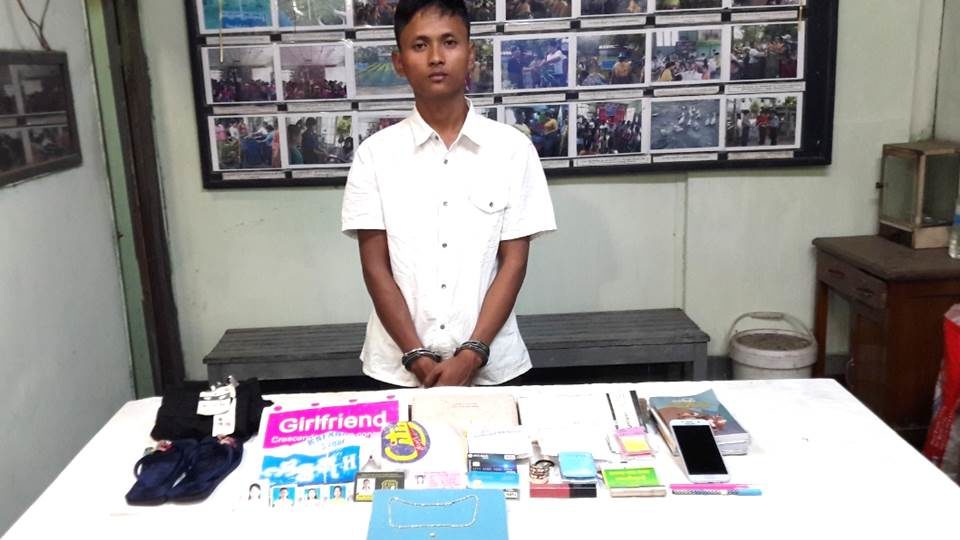The release last week of national statistics on sexual assault for 2017 has struck a nerve across Myanmar, adding to the fear and anger that many already felt in the wake of the brutal rape and murder of a young civil servant in Yangon late last month.
The Myanmar government and its cheerleaders want victims and potential victims to take responsibility for the grim statistics. But women’s rights groups know that this victim-blaming is both morally and practically flawed, and they are hitting back with demands for the death penalty for rapists. These demands are unlikely to be met, but they are already shifting the focus of assault-prevention policies from the victims to the perpetrators.
According to the statistics released by the Ministry of Home Affairs, reported rape cases rose from 1,100 in 2016 to 1,405 in 2017. This includes a rise in rapes of adult women from 429 to 508 and in rapes of underage girls from 671 to 897.
The announcement came on the heels of a case that has caught national attention, in which 26-year-old Food and Drug Administration staffer Shwe Yee Win was raped and murdered by a taxi driver on Jan. 20. Women’s groups, including the Women’s Protections Organization (also known as the Women’s Safeguarding Team) staged a protest outside the courthouse where the suspect, taxi driver Myo Zaw Oo, was on trial on Feb. 8, calling for the death penalty for convicted rapists, including those who were convicted in the past.
A similar protest was held in Madaya Township, Mandalay Region, on Feb. 18, after a local villager was charged with the rape and murder of a two-year-old girl. The father of the victim called for rapists to be executed publicly.
According to Hnin Yee Aye, a leader of theWomen’s Protections Organization, the “Death to Rapists” campaign is motivated by a need for Myanmar society to recognize that rape occurs because laws have failed to deter perpetrators of sexual violence.
Lenient sentences and amnesties for rapists have contributed to the rise of rapes in the country, she told the Myanmar Times.
However, the Ministry of Home Affairs, which oversees the police force, included in its release of the rape statistics a directive to women to “wear suitable clothing in order not to tempt fate.”
On top of that, an opinion piece written by former diplomat Maung Thaung Win in today’s Global New Light of Myanmar offers even more explicit victim-blaming.
“Women in Myanmar must be attentive and careful in their every moment of activities,” the former diplomat writes. “If the woman is going out on business matter at night time, a companion must be called in. The clothing must be decent and proper, not showy. Fashion clothing and trendy outfits showing too much of the body must be avoided as it could tend to invite criminals. Too much stylish outfits are not advisable to wear as the girls might be mistaken with the call girls or hookers.”
He also blames “Facebook culture” for rising rates of sexual assault, arguing that the “profuse enjoyment of phonographic [sic] video, sex literature, and sexual category photos…are the factors that push towards sex assaults.”
According to women’s rights advocates, what the Ministry of Home Affairs and Maung Thaung Win fail to understand is that dressing a certain way to prevent rape and shielding young people from information about sex and sexuality have been the main tactics for preventing rape in Myanmar for generations, and they have failed miserably. Last year’s statistics can be interpreted as proof of that failure.
Even activists who do not support the death penalty for rapists are seizing this moment to speak out against victim-blaming and sexual repression.
Daw Yin Myo Su, a Shan State-based educator and founder of Inle Heritage, told the Irrawaddy last week: “Can we truly admit to ourselves why such rapes happen? It is because of our culture, a culture of not talking about sexuality openly. We have been told since our teenage years that talking about sex is not polite and that we should not speak out…The mother won’t talk to her daughter, and neither will the school. We were not taught in our teens about sexuality and reproductive health or how to deal with those feelings.”
“Death to Rapists” campaigners may not end up securing the death penalty for rapists, but they are already succeeding in calling attention to society’s unwillingness to impart life-saving knowledge about sex and sexuality to girls and, more importantly, to the perpetrators of sexual violence.




